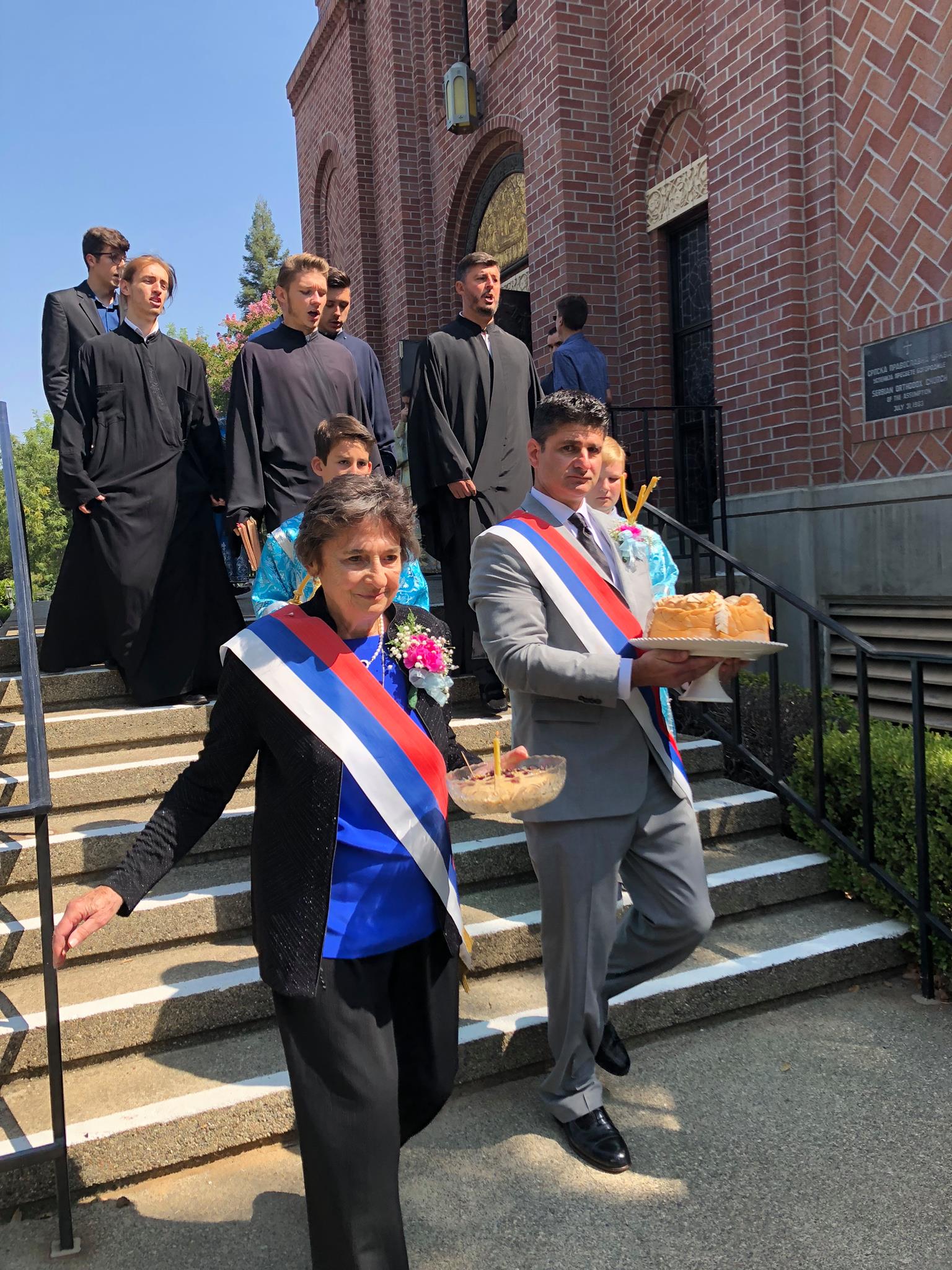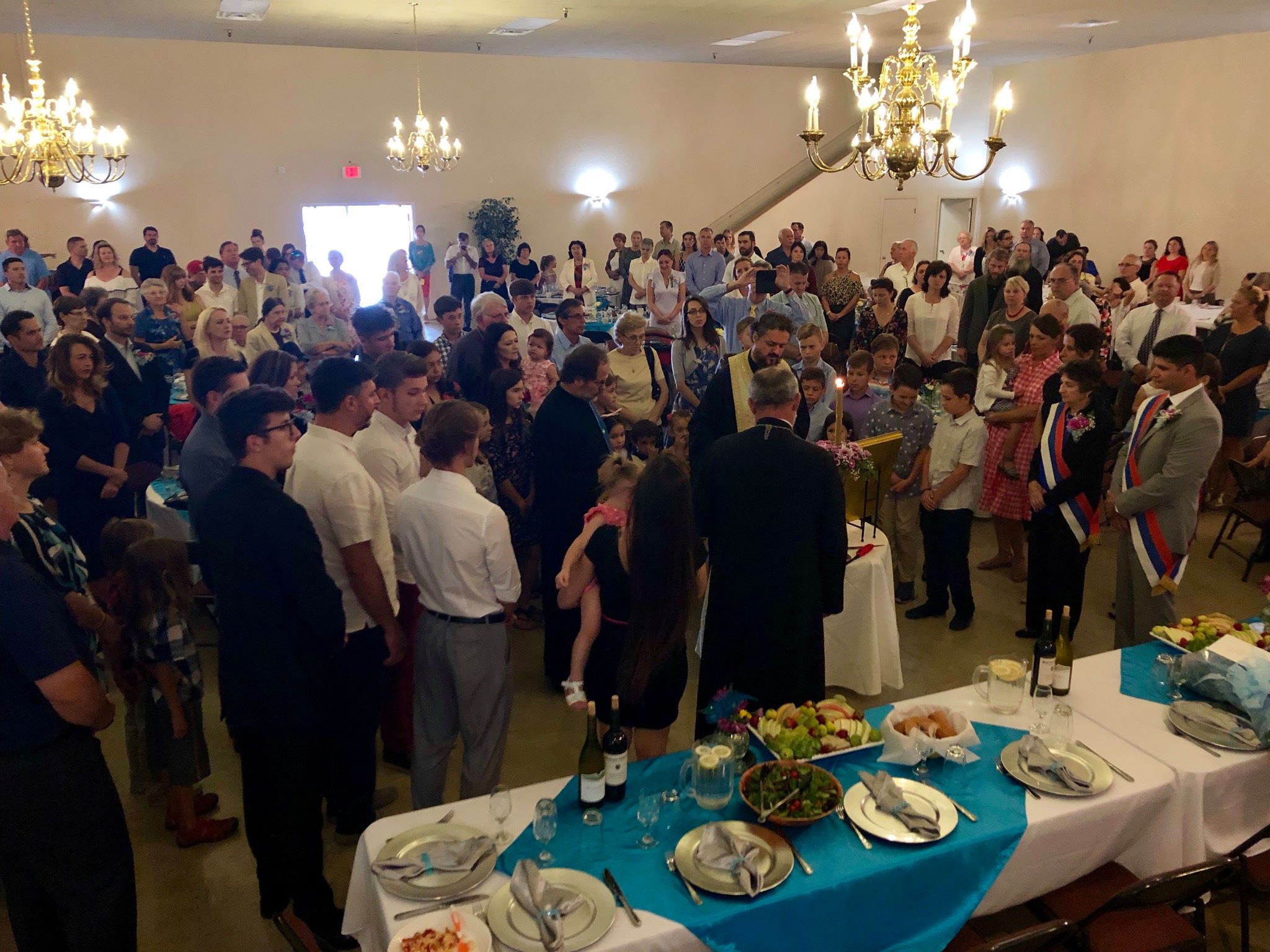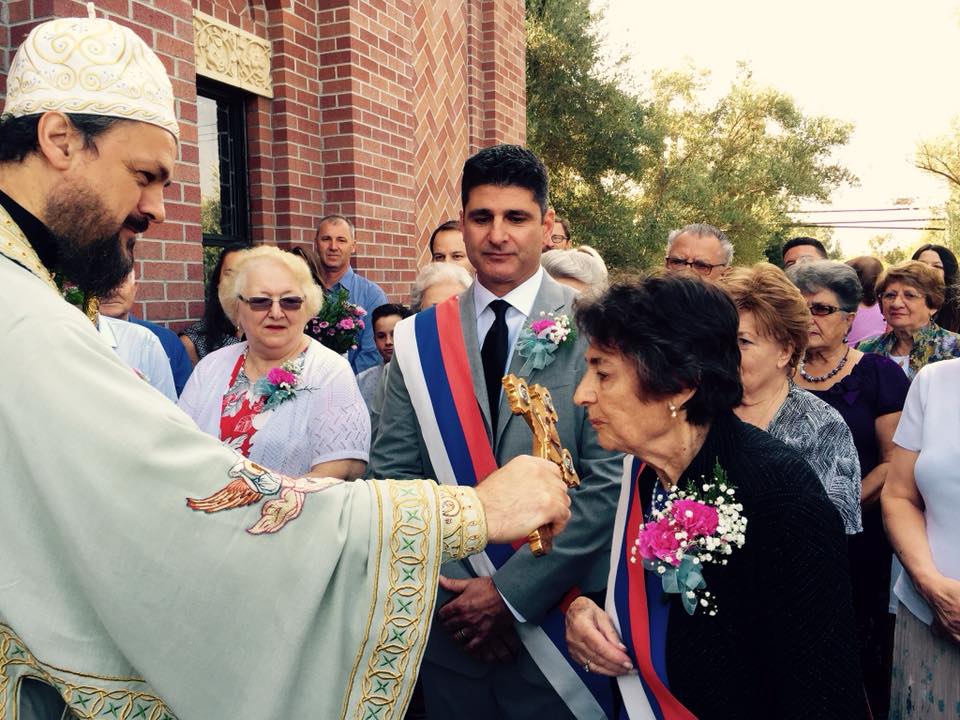Slava
Serbians bear with pride the fact that out of all the Orthodox people, they are the only ones to carry the tradition of "Slava". When the Serbians were first Christianized by Greek missionaries in the 9th century, it was common for whole villages and families to be mass-baptized all at once. Families adopted the Saint commemorated on the day of their original baptism as the family’s Patron Saint. Even today it is said that families with the same Slavas are related.
Translated as “the praise”, Slava is one of the most important events in a household, nearly equal to a marriage. Slava is passed from father to son, and is celebrated by the entire family usually at the eldest male’s house. It is on this day that the family commemorates their ancestor’s baptism into Christ and the protection of the Saint over the household.
To prepare for the Slava the family fasts for a week to recieve Holy Communion on the day of the Slava. In addition a large feast is prepared. Included are the traditional foods: the Slavski Kola? & Koljivo. Translated directly, Slavski Kola? means "Slava Cake". The Kola? itself is embedded with the sign of the Cross and the Dove of Peace. Also added are symbols that relate to the family. The Koljivo (also called �ito) is made of boiled wheat. It may be prepared in a variety of ways including ground with the addition of spices and honey. The wheat is symbolic of the Resurrection of Christ and dead family members.
On the day of a Slava the family attends Church services and partakes in Holy Communion. Following the service, the parish Priest is received in the family's home. He performs a small service which entails venerating the Saint's memory, blessing the Slavski Kola? & Koljivo, as well as lighting the Slava candle.
During a Slava the home is open to anybody and all who wish to drop by. Nobody is turned back, even those who might have a dispute with the family. To turn away someone would be considered a sacrilege and bring dishonor upon the family.



